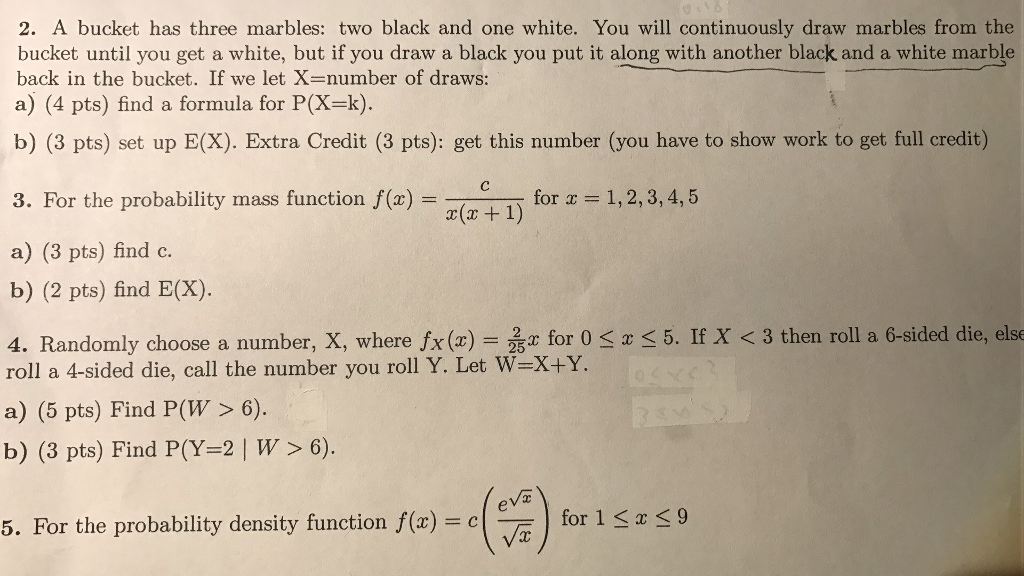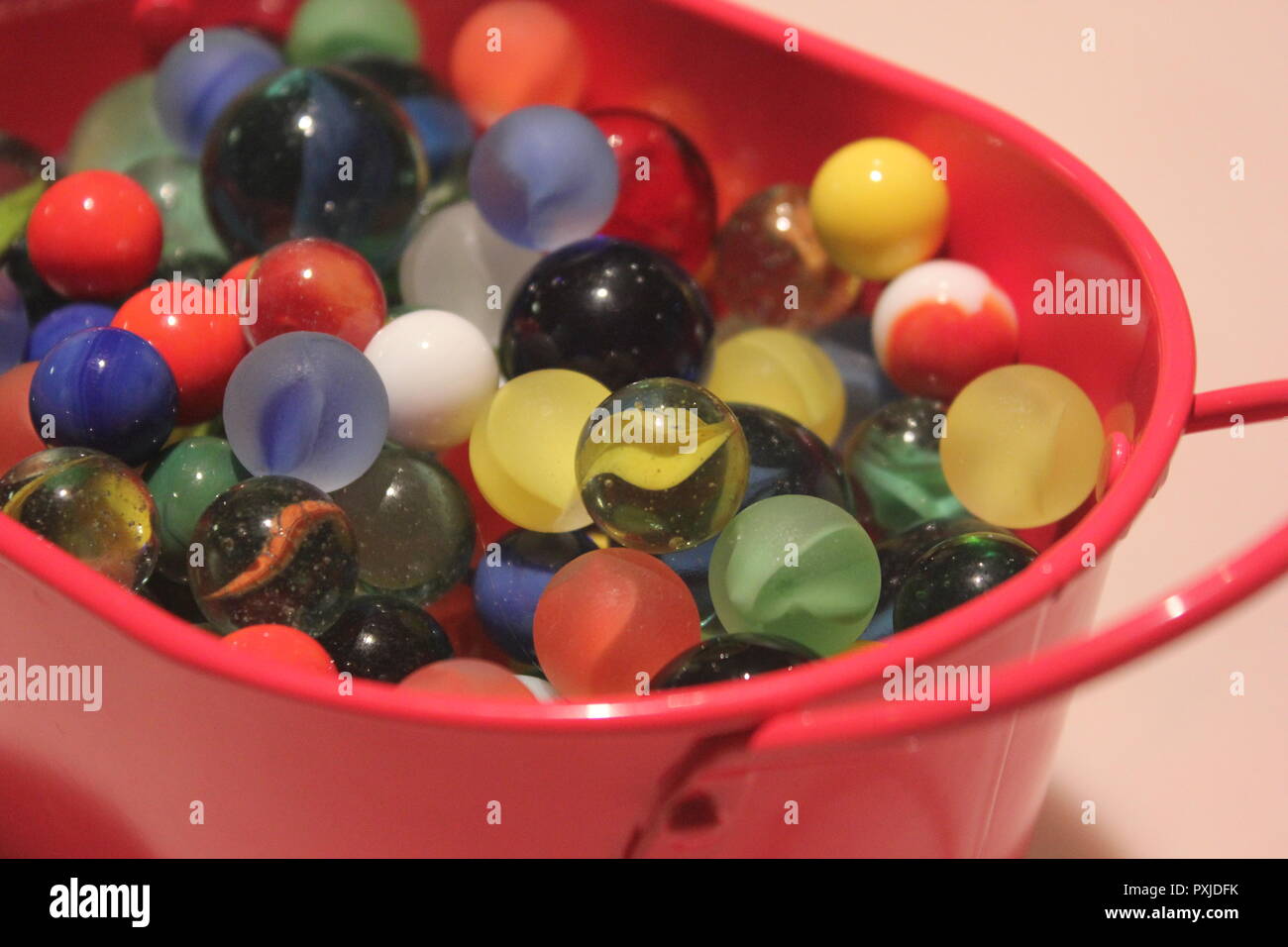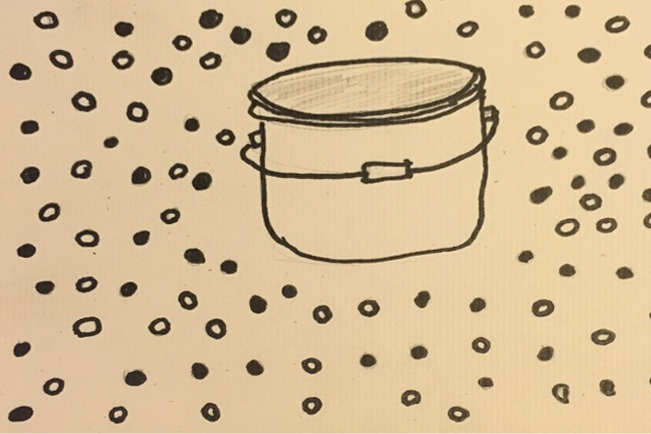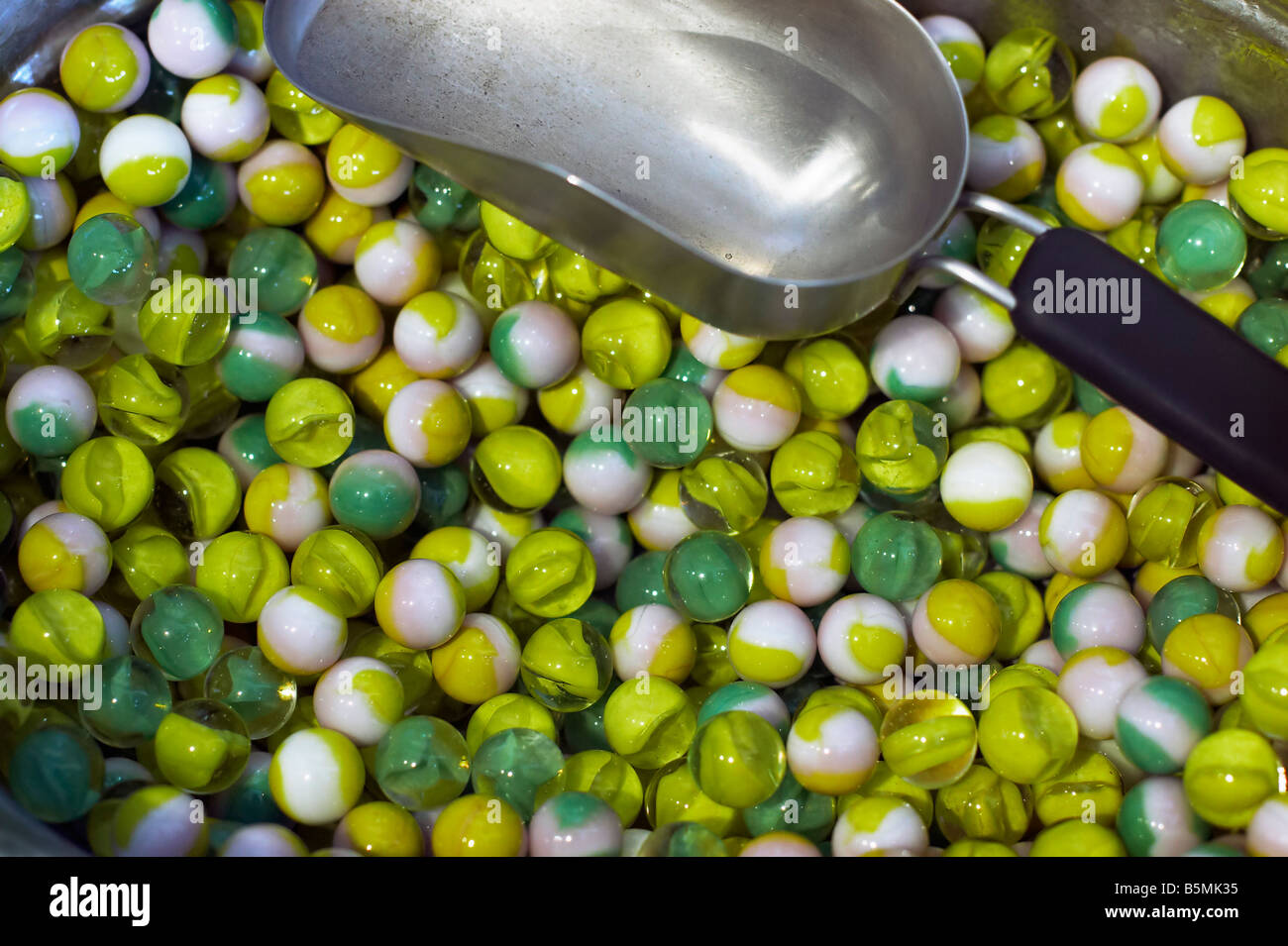We assume marbles are equally to be taken and the total amount is the same in the two buckets where the total is 2m where m is the number of total white marbles and the same quantity for black marbles and m is too the.
Three marbles in a bucket.
The bucket is so large that two or three marbles drawn at random are independent of each other 30 of the marbles are blue.
Use your dremel to drill two small holes into the bucket and through the plastic funnel drop.
So i could pick that red marble or that red marble.
Now there are three marbles in the bucket.
You can justify if you write the probability equations.
There s two red marbles in the bag.
What i am looking for is the probability that i should assign to each of the three marbles so that i get to choose one uniformly at random 1 n.
There is a very large bucket of marbles on a table.
Because two of the three marbles are the same color the situation isn t 50 50 anymore.
Thread cable tie from inside of the bucket through both holes in the plastic piece and back through the bucket.
So i could pick that yellow marble that yellow marble or that yellow marble that yellow marble.
You have the probability p1 for one bucket to take in the first attempt a white marble the same for a probability p2.
Record how many whites and how many blacks you have.
Test marble run and adjust as needed.
Each bucket has k l m marbles respectively k l m n i will pick one marble from each of the three buckets with probability 1 k 1 l 1 m respectively and i ll put them into a another bucket.
These are clearly all yellow.
I used the small pliers to pull the tie through the clasp and tighten it.
Well there s three yellow marbles.
Whatever color marble you pull out put two marbles of that color back in.
Once again without looking pull out a marble.
So i could pick that green marble or that green marble.








